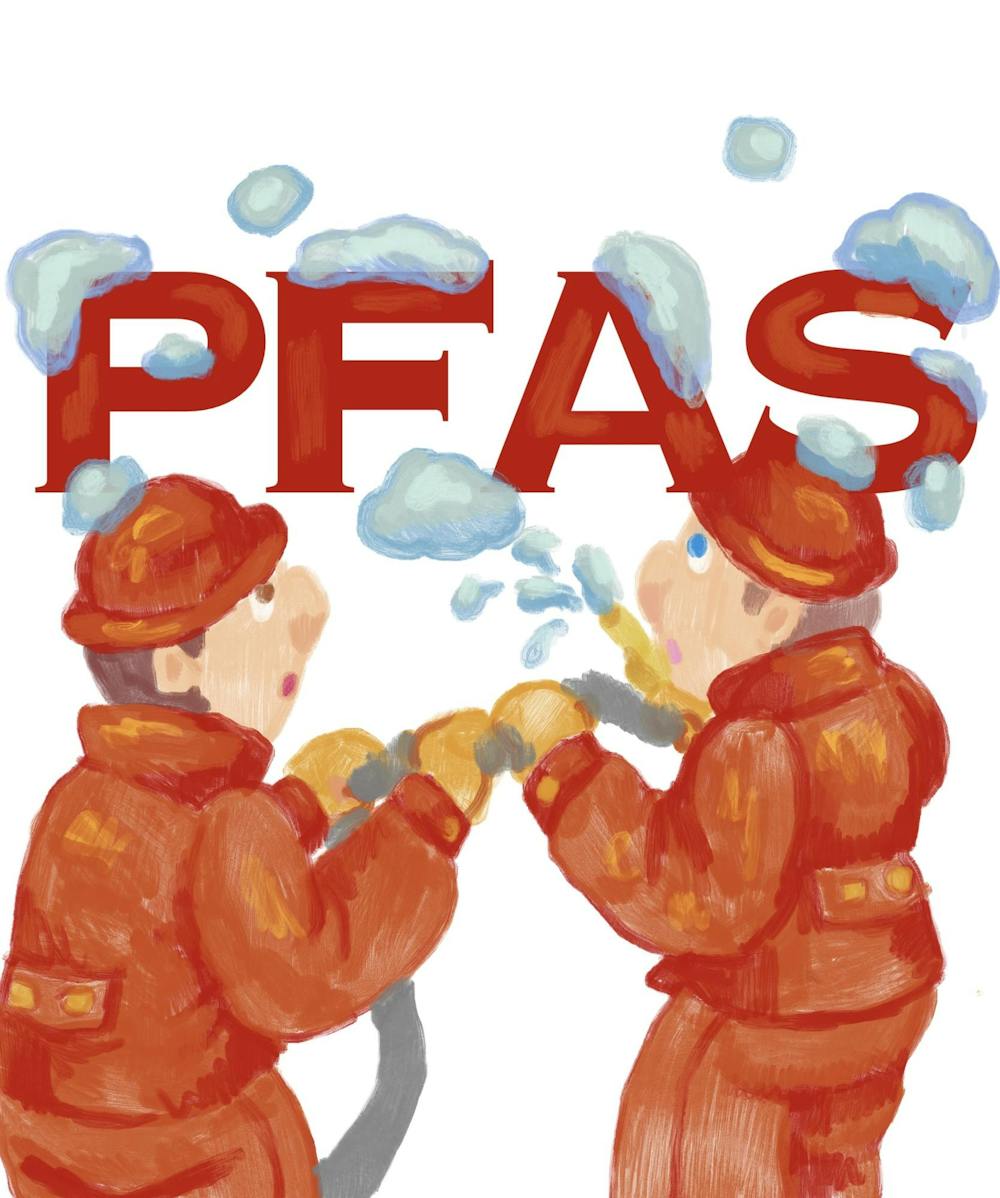On March 6, the Rhode Island House of Representatives passed a new bill aiming to ban “the manufacture, sale or distribution” of firefighting personal protective equipment containing PFAS by 2027.
PFAS — which stands for per- and polyfluoroalkyl substances — are man-made chemicals often found in industry and consumer products. They are associated with a variety of adverse health effects, according to the Centers for Disease Control and Prevention.
Known as “forever chemicals,” PFAS are long-lasting and do not easily break down in the environment.
Firefighter protective gear commonly uses PFAS chemicals because it helps waterproof protective equipment, according to Rep. June Speakman (D-Bristol, Warren), one of the legislators that sponsored the bill.
“This bill is the most recent in a long line of bills that we have passed in the Rhode Island General Assembly to regulate PFAS,” Speakman said.
The General Assembly passed legislation in 2022 that required state officials to set standards for PFAS levels in drinking, ground and surface waters. Last year, a separate bill banned PFAS from consumer products in the state, including clothing, cosmetics and outdoor apparel. That same bill also banned PFAS in class B firefighting foam.
Speakmen highlighted that exposure to PFAS has been correlated with increased prevalence of cancers among firefighters and has been linked to reductions in women’s fertility and reproductivity rates.
Joseph Braun, professor of epidemiology and director of the Center for Climate, Environment and Health, linked PFAS to other adverse health outcomes, including “low birth weight in babies, reduced vaccine response, cancer as well as elevated lipid levels.”
“Bills like this are important in that they eliminate the use of PFAS, which is going to limit its spread in the environment,” Braun explained in an interview with The Herald.
PFAS legislation has garnered support nationwide. According to public policy think tank Rockefeller Institute of Government, just one PFAS-related bill was enacted in 2016, while 39 were implemented in 2023.
Chief Richard Susi — a retired Cumberland fire chief who currently serves as secretary and executive director of the Rhode Island Association of Fire Chiefs — said that eliminating PFAS in firefighting equipment is “important because of the (associated) cancer-causing agents” in PFAS that firefighters are exposed to.
“We’re absolutely in support of it,” Susi added.
Speakman, who is optimistic about the bill passing in the state Senate, noted that the legislation has encountered little opposition so far.
This bill “will make firefighting safer,” wrote Ieva Jusionyte, an associate professor of international security and anthropology, in an email to The Herald. But she believes that “providing new PFAS-free firefighter gear will be more costly for fire departments,” which will “hit smaller, volunteer-run departments harder.”
According to Susi, several fire departments across the state are currently testing the use of non-PFAS firefighting gear. But it remains unclear whether or not they are equally effective.
“We need to remove as much of (PFAS) as possible everywhere,” Speakman said. “We need to find ways to protect our firefighters from exposure.”





